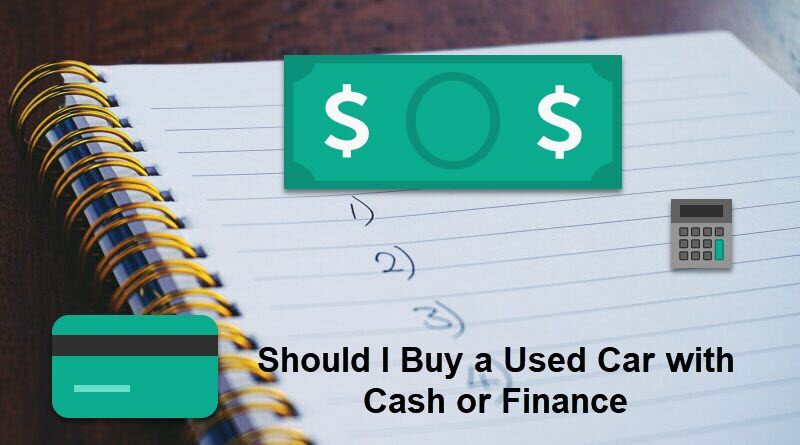Should I Buy a Used Car with Cash or Finance? Factors to Consider
When purchasing a used car, one of the primary decisions you’ll need to make is whether to buy it outright with cash or finance it through a loan. Both options have their advantages and considerations, so it’s important to evaluate your personal circumstances before making a decision. Here are some factors to consider when deciding between buying a used car with cash or financing it:
- Financial Situation: Assess your financial situation to determine if you have sufficient funds available to buy the car outright. If you have enough savings or a lump sum available, paying with cash can help you avoid monthly loan payments and potentially save on interest costs.
- Budgeting: Consider your budget and monthly cash flow. If purchasing a car with cash significantly depletes your savings or leaves you with little emergency fund, financing may be a better option. It allows you to spread the cost of the car over a period, making it more manageable and leaving you with financial flexibility. See paying cash.
- Interest Rates: Evaluate the prevailing interest rates for car loans. If the interest rates are low, financing the purchase might be more appealing. You can keep your cash reserves intact or invest them elsewhere, potentially earning a higher return than the interest you’ll pay on the loan.
- Creditworthiness: Assess your creditworthiness and credit score. A good credit score can help you secure a favorable interest rate on a car loan. If your credit score is low or you have limited credit history, you may face higher interest rates, making cash purchase more attractive.
- Future Financial Goals: Consider your long-term financial goals. If you have other financial priorities, such as saving for a down payment on a house or paying off high-interest debt, using cash for the car purchase may be a wise choice. It allows you to allocate your funds towards these goals and reduce overall debt burden.
- Ownership and Resale Value: Evaluate how long you plan to keep the car and its potential resale value. If you intend to sell the car within a few years, financing may result in negative equity, whereas owning it outright allows you to sell it without any loan obligations.
- Insurance and Maintenance Costs: Keep in mind that insurance rates for financed vehicles can be higher compared to owned cars. Additionally, financed cars often require comprehensive insurance coverage. Consider these costs along with ongoing maintenance expenses when making your decision.
- Personal Preferences: Finally, consider your personal preferences and comfort level with debt. Some individuals prefer the peace of mind that comes with owning a car outright, while others are comfortable with monthly loan payments. See also finance options.
Ultimately, the decision to buy a used car with cash or finance it depends on your financial situation, budget, interest rates, creditworthiness, long-term goals, and personal preferences. Carefully evaluate these factors to determine which option aligns best with your needs and financial circumstances. Remember to consider the total cost of ownership, including insurance, maintenance, and future resale value, when making your decision. See how to select insurance too.

